Services
Pioneering healthcare innovation
We aim to develop disruptive solutions for personalized medical care, introducing innovations that expand the sector's capabilities.
Services
Pioneering healthcare innovation
We aim to develop disruptive solutions for personalized medical care, introducing innovations that expand the sector's capabilities.
Innovative approaches in modern medicine
By integrating artificial intelligence, genomics, and advanced medical imaging, we forge a new paradigm in drug development, therapeutic target identification, and diagnostic processes. Committed to a holistic vision, we enhance the precision, safety, and personalization of medical treatments. Each innovation is crucial to our goal of transforming medicine. Likewise, we are open to participating and supporting any project that requires intensive data management.
Innovative approaches in modern medicine
By integrating artificial intelligence, genomics, and advanced medical imaging, we forge a new paradigm in drug development, therapeutic target identification, and diagnostic processes. Committed to a holistic vision, we enhance the precision, safety, and personalization of medical treatments. Each innovation is crucial to our goal of transforming medicine. Likewise, we are open to participating and supporting any project that requires intensive data management.
Driving Excellence in Specialized Medical Fields
Areas of expertise
Development of machine learning models to identify patient prognosis.
Development of prediction systems for differential response to therapies.
Enhancing Prognostic Models through Advanced Machine Learning and Multidisciplinary Integration in Medical Imaging.
In silico drug identification with our generative AI system.
Generation of new genomic diagnostic systems augmented by artificial intelligence.
Development of systems for the automation of diagnosis and reduction of errors based on multimodal data.
Creation of applications to optimize the management of updated medical information with generative AI.
Development of applications for patient telemonitoring.
Scientific training and dissemination of scientific knowledge.
Development of machine learning models to identify patient prognosis
The development of machine learning models to identify patient prognosis is a critical advancement in healthcare. Sophisticated models are designed to predict the clinical evolution of patients through survival analysis. These prognostic models classify patients according to their risk levels, providing valuable insights into their expected clinical outcomes. Utilizing state-of-the-art techniques, these models enable healthcare professionals to make informed decisions, improve patient management, and optimize treatment plans. The integration of advanced machine learning algorithms ensures high accuracy and reliability, making these tools indispensable in modern medical practice.
Creating prediction systems for differential response to therapies represents a significant leap forward in personalized medicine. These predictive models analyze patient data to determine which individuals are most likely to benefit from specific treatments. This personalized approach allows for tailored treatment plans that enhance the effectiveness of therapies and improve patient outcomes. The development process includes comprehensive gene panel creation, which facilitate detailed and differentiated diagnosis through targeted gene sequencing. These systems not only broaden the spectrum of possible applications across various tumors but also ensure high precision and cost-effectiveness in treatment planning.

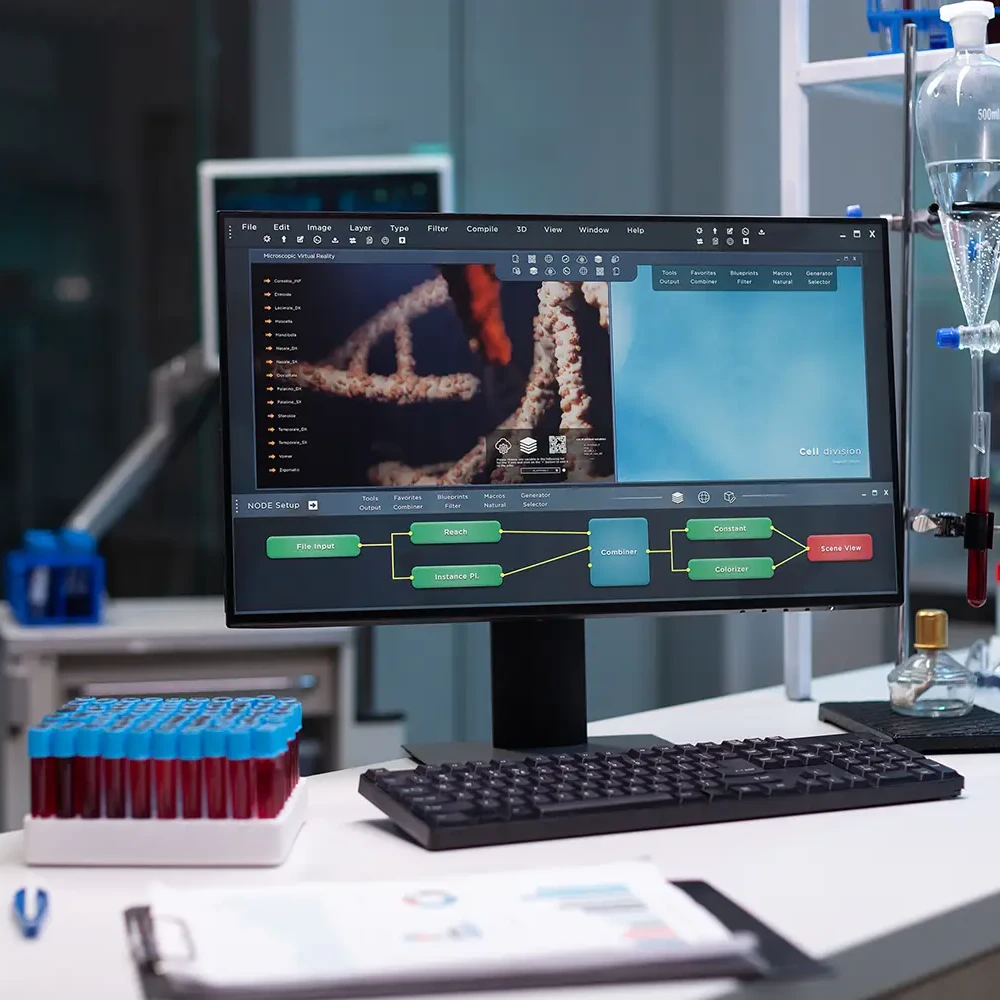
Enhancing prognostic models through advanced machine learning and multidisciplinary integration in medical imaging
Our approach focuses on the detailed identification of inherent characteristics and specific spatial patterns in medical images, which enables us to significantly enhance the detection of analytical variables essential for refining existing prognostic and predictive models. This meticulous feature extraction from images is performed using advanced machine learning models, specifically adapted for medical image analysis. At Biodigital Tech, we provide a comprehensive solution that allows for exhaustive image analysis, the results of which can be correlated with genomic findings, thus enriching the landscape of available information. This multidisciplinary integration not only can improve the accuracy of results but also paves the way for more personalized and effective interventions, setting new standards in the precision of medical diagnostics and therapeutics.
The Smart-Cytoflow model represents a significant advancement in flow cytometry as it is the first system to incorporate artificial intelligence to analyze the pathogenicity of samples with an accuracy greater than 95%. This system uses advanced data analysis methods, such as clustering and regression through machine learning, to classify cell populations into distinct groups, thus facilitating a more detailed understanding of cell composition and enabling automated and accurate diagnostic interpretation. Smart-Cytoflow is particularly valued for its ability to handle complex cellular data matrices, identifying patterns and correlations that would be difficult to discern with traditional methods. The implementation of the system has been achieved through specific software, contributing to its efficient deployment during the diagnostic process.
Development of systems for the automation of diagnosis and reduction of errors based on multimodal data
TIntegrating multimodal data significantly advances medical diagnostics by automating diagnosis and reducing errors. Combining genomic data, medical imaging, and clinical information enhances the accuracy and reliability of diagnostics. This comprehensive approach provides a detailed view of patient health, enabling more precise and personalized treatment strategies. Advanced machine learning algorithms analyze these diverse datasets to identify patterns and correlations, leading to the development of predictive models. These models can forecast disease progression and treatment responses with high accuracy. Automation ensures consistent and objective data interpretation, reducing human error and streamlining workflows. Overall, this integration improves diagnostic precision and predictive accuracy, setting new standards in personalized medical care and leading to better patient outcomes.
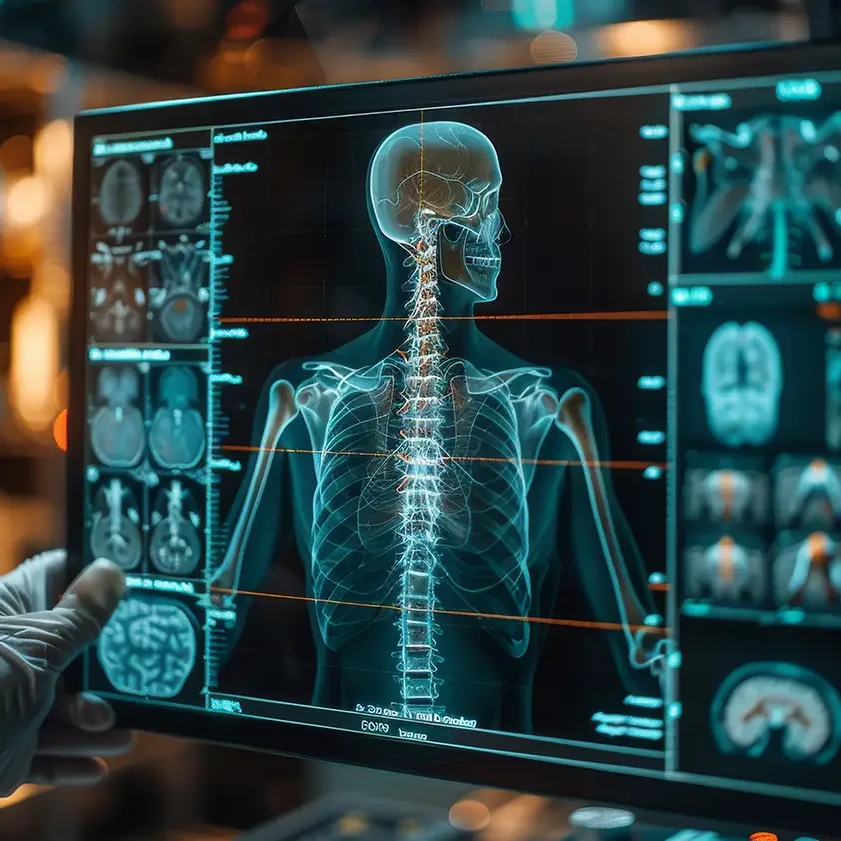
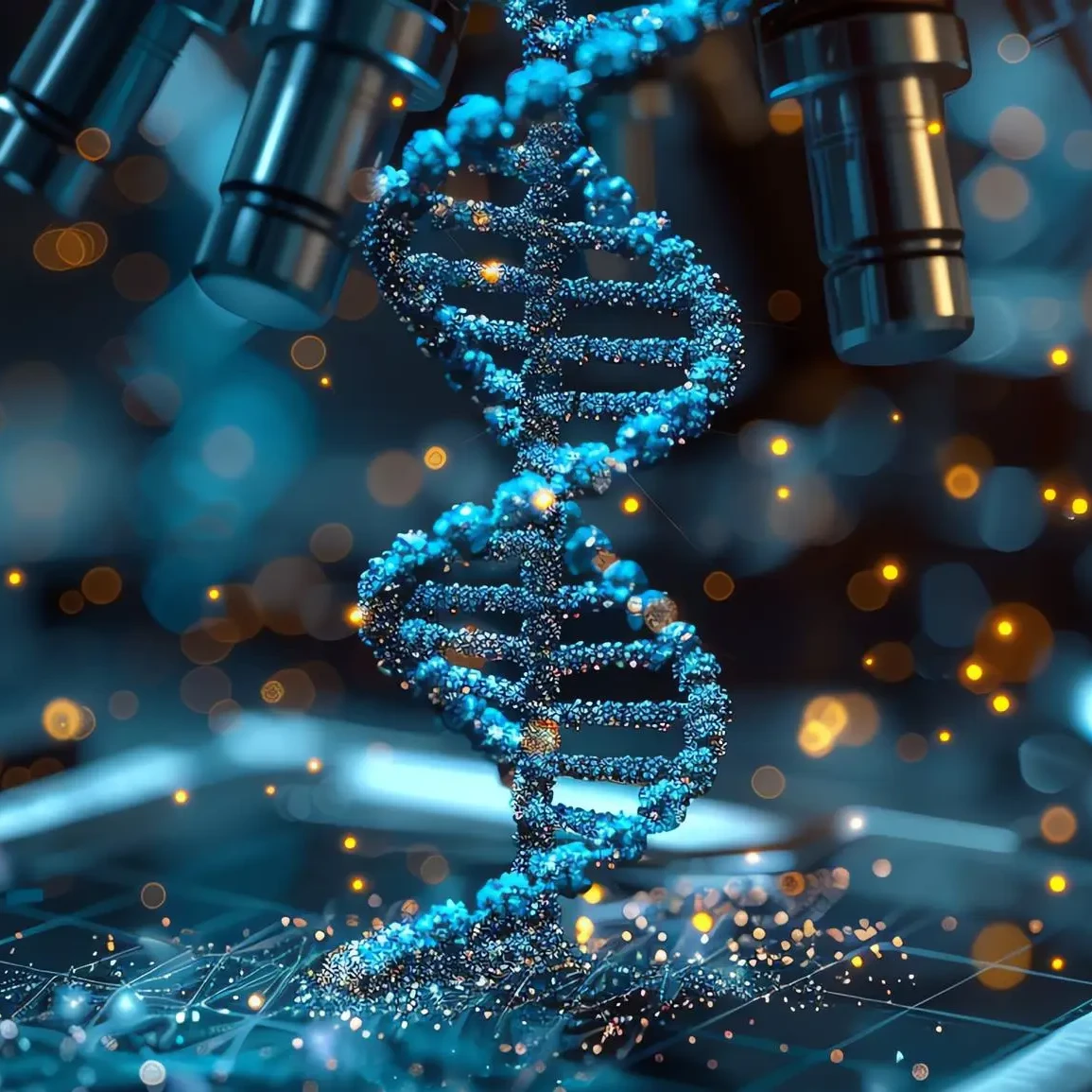
Generation of new genomic diagnostic systems augmented by artificial intelligence
The generation of new genomic diagnostic systems augmented by artificial intelligence represents a groundbreaking advancement in medical technology. By integrating AI, we enhance the precision and efficiency of genomic analysis, allowing for more accurate diagnoses. Additionally, we develop bespoke diagnostic models tailored to specific needs, ensuring that each unique clinical requirement is met with the highest level of precision. These ad-hoc diagnostic models are meticulously crafted to address the diverse and complex nature of various medical conditions. By leveraging AI, we can analyze vast amounts of genomic data swiftly and accurately, uncovering subtle patterns and insights that traditional methods might miss. This approach not only improves diagnostic accuracy but also enables personalized treatment plans, aligning therapies with the unique genetic profiles of individual patients.
Development of applications for patient telemonitoring
We develop mobile applications for patient telemonitoring, seamlessly integrated with smartwatches to enable enhanced patient tracking. Our comprehensive approach encompasses the entire process, from deploying the application to designing the smartwatch and establishing the necessary infrastructure for continuous data collection. These innovative applications allow healthcare providers to monitor patients remotely, ensuring real-time access to vital health metrics. By integrating smartwatches, we facilitate constant monitoring of crucial parameters such as heart rate, physical activity, and sleep patterns, providing a holistic view of the patient’s health status. Our end-to-end solution includes the deployment of user-friendly mobile apps, the development of advanced smartwatches, and the creation of a robust data collection and analysis infrastructure. This integrated system ensures that healthcare providers can make informed decisions based on accurate, up-to-date information, ultimately improving patient outcomes and enabling more personalized care.
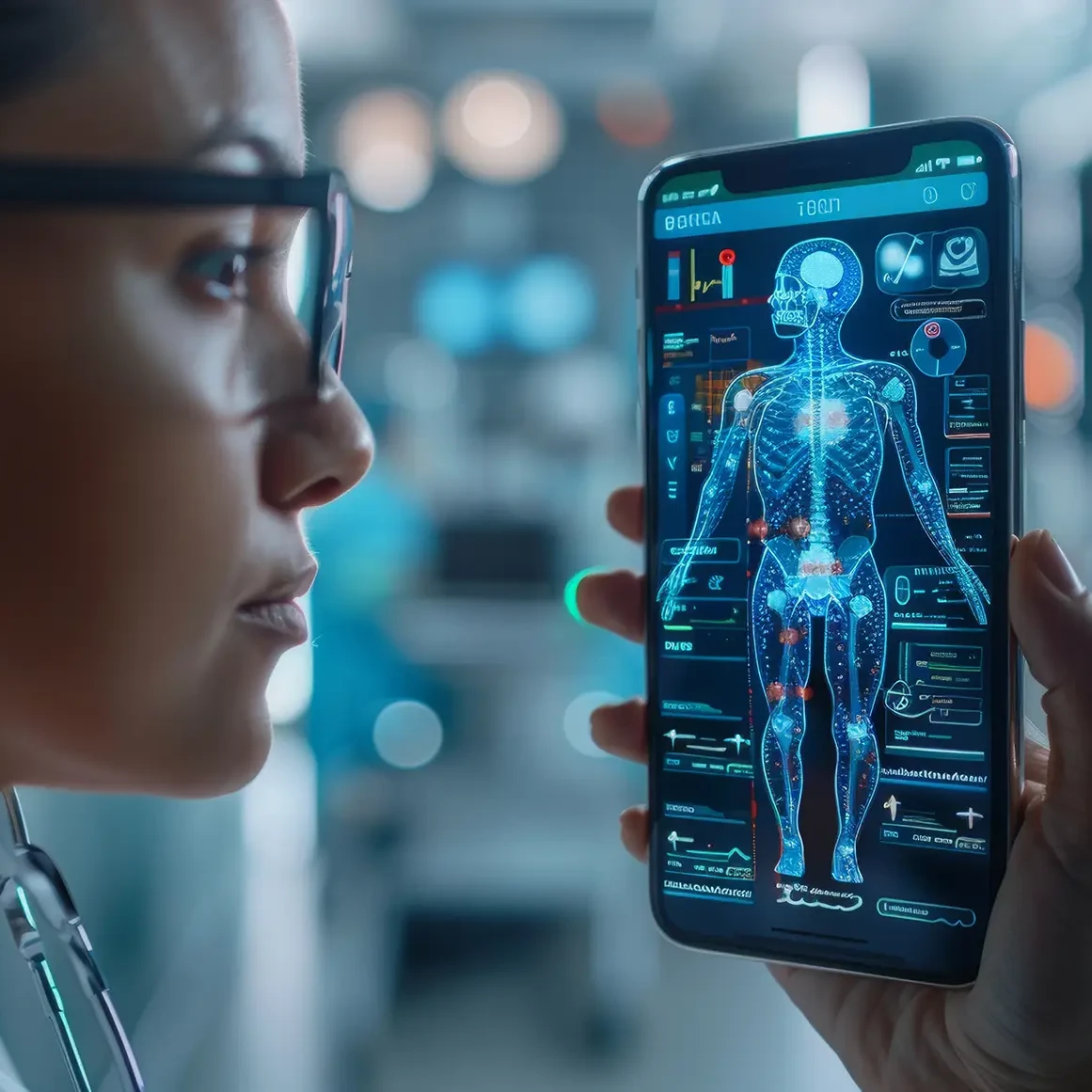

Creation of applications to optimize the management of updated medical information with generative AI
Our alliance specializes in transforming medical information into chatbots based on natural language processing. Our chatbot service provides instant, accurate, and personalized responses to user inquiries, simplifying the process of retrieving information and referencing original documents. This improvement increases the efficiency and reliability of medical care by minimizing the risk of errors and promotes continuous professional growth by providing easy access to the most current medical knowledge. It uniquely integrates guidelines for various conditions, which is particularly beneficial for patients with multiple health issues requiring a comprehensive treatment approach. Additionally, the chatbot ensures real-time updates, keeping healthcare professionals informed of the latest guidelines without the need for manual follow-up. This focused approach addresses inconsistencies in the interpretation and application of guidelines, resulting in more uniform and precise patient care.
In silico drug identification with our generative AI system
Our alliance is committed to developing innovative oncological therapies, focusing on hematological neoplasms where current treatments are often insufficient or entail significant adverse effects. Our current approach covers the entire pharmaceutical development spectrum, from initial conception to full validation, with the aim of transforming the existing treatment paradigm. We utilize cutting-edge technologies to advance in three key areas: the identification of new molecules with therapeutic potential (Hit Discovery), the enhancement of already identified molecules to increase their efficacy (Hit to Lead), and the final refinement of these molecules for clinical application (Lead to Discovery). Our holistic approach not only accelerates the drug discovery and development cycle but also enhances its precision and efficiency.
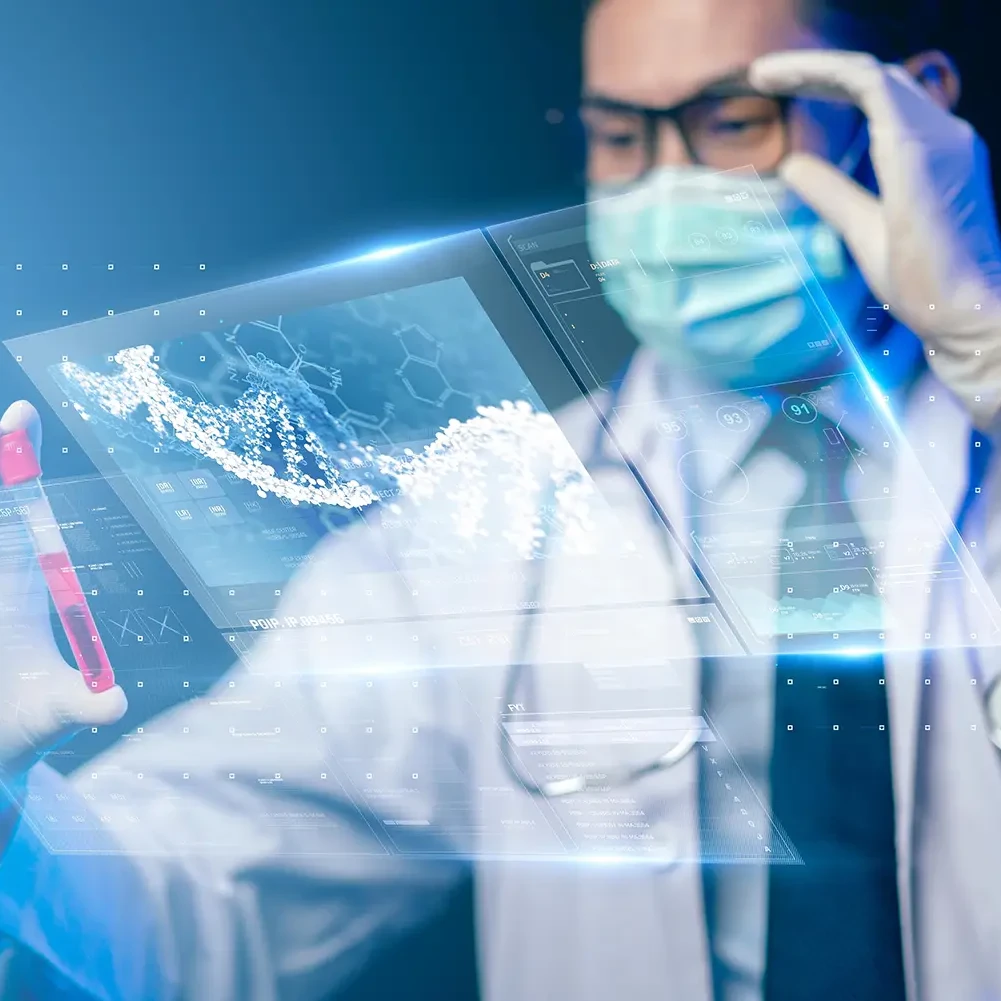
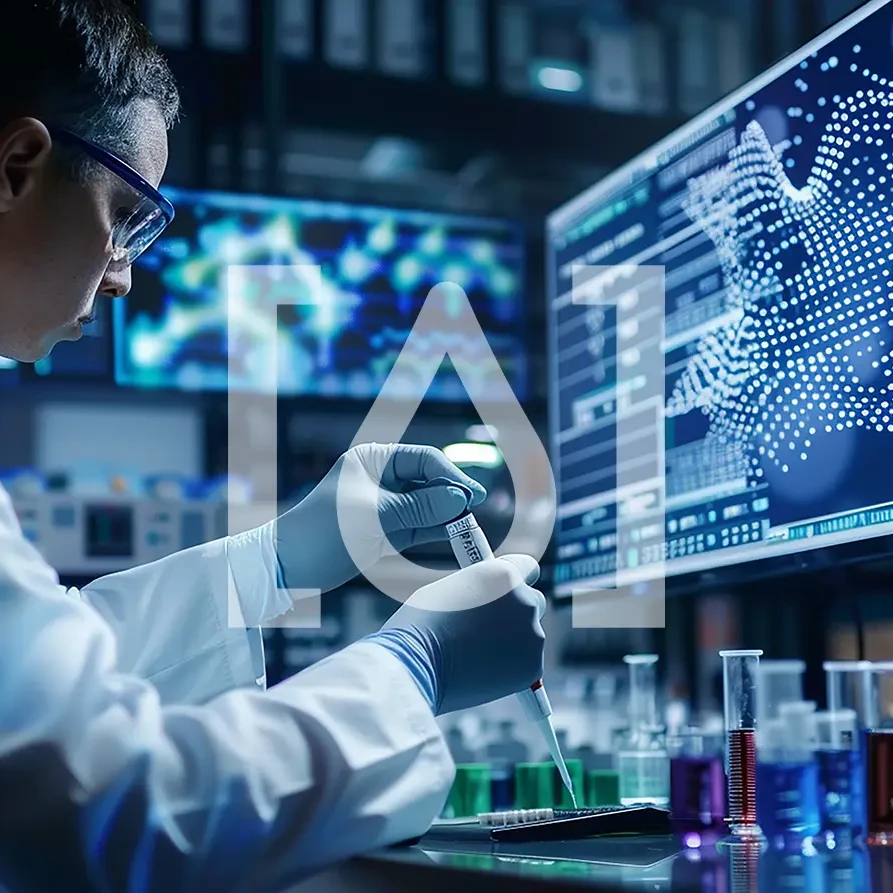
Scientific training and dissemination of scientific knowledge
We aim to advance scientific knowledge through rigorous training and effective dissemination. We develop innovative educational resources and actively share our findings through publications, conferences, and public outreach. We advocate for open science practices, supporting transparency and accessibility in research. Additionally, we inform policy and decision-making with evidence-based recommendations and encourage continuous professional development for researchers. Our goal is to foster a vibrant, inclusive scientific community that contributes to societal well-being. Among these outreach projects is our podcast, Código Rojo, where we explore how data and artificial intelligence are transforming the field of hematology, improving diagnoses, treatments and the lives of patients.